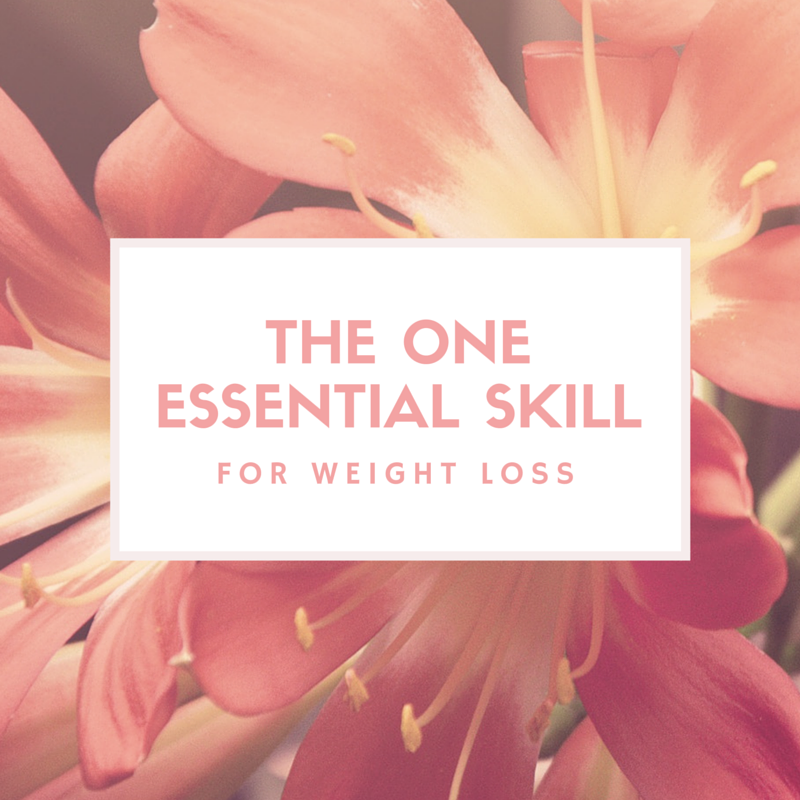It may be surprising to hear that the one essential skill for weight loss has nothing to do with counting calories, cooking, or working out. It has to do with the ability to stay present with yourself. If you can cultivate the skill of maintaining awareness of your body and mind—-through difficult feelings as well as good ones—you will have the ability to lose weight and keep it off. You will be able to be sensitive to your body when it tells you that a certain food, or amount of food, is causing health problems. Rather than tune out and continue harmful behavior, you can learn to tune in and stay tuned in. And you can learn to use that presence as a jumping off point to more positive feelings and behaviors.
If avoidance is the problem, then compassionate awareness is the solution. It sounds simple, but it is perhaps one of the most difficult things for anyone to do—whether they are losing weight or not. That is why we recommend making mindfulness a daily practice.
Our world is set up to provide countless distractions and forms of escape. A little escapism may be a good thing once in awhile, but escapism has a way of becoming the default reaction. So how to shift the tide? The answer: one step at a time– starting now.
The time to start is now. Not tomorrow or next week. Not after vacation. Not when the holidays are over or when winter is over. But now. The present moment is all we have, and it is always new. The past is merely a story we tell ourselves, and the future is not yet real. Climbing a mountain is really only a series of small steps. A sequence of “now. now. now…”
Here are three ways to cultivate the skill of staying present with yourself:
- A daily physical practice. This is a must. Get out of your head and into your body with yoga, tai chi, running, walking, biking, dancing, or pilates. Learning to stay present with yourself requires a physical practice. Overeating is an interesting behavior because it is a profoundly physical activity. That is one reason why emotional eating soothes difficult emotions: it takes you out of your thoughts and emotions and into your raw physical experience. The problem is there is a split between your mind and body. With a daily physical practice, you are perfecting having your body and mind operate as one unit. You will practice staying present during mildly distressing moments, such as holding a difficult yoga pose. Your teacher will guide you into breathing through it and not giving into the temptation to mentally disconnect from your experience. The daily physical practice should be in addition to your daily meditation practice (which only needs to be a few minutes).
- Work with someone who has already been there.While it is possible to do this alone with nothing more than a book, You Tube, and some motivation, it is really, really hard. Do yourself a favor and find someone who has walked the walk and can help you along the way. In a yoga class, for example, your teacher will be right there guiding you into direct experience with yourself moment by moment. In my class, sometimes I even count the breaths with students. Holding downward dog may be so difficult they want to give up, or zone out, but my voice is right there telling them to breathe in and breathe out, breathe in and breathe out… A coach, trainer, or fitness instructor can also help but it is important that they have some training in the mindfulness traditions.
- Prioritize. Since this such an essential skill, put your daily practice at the top of your to do list. Make it a non-negotiable part of your day. For me, I practice yoga wherever I am, even if I can only squeeze in a few minutes. Steve has been known to do his daily tai chi practice while on road trips, at rest stops, on beaches, in hospital waiting rooms, or wherever he happens to be. The only way to become good at a skill is through daily practice. So when planning your day, schedule in your physical practice and your daily meditation practice as a top priority. Eventually, it will become natural to fit this into your day just like brushing your teeth. It is only in the beginning that it will require some effort.

